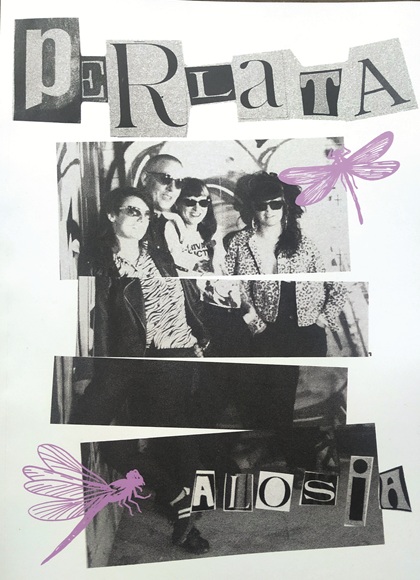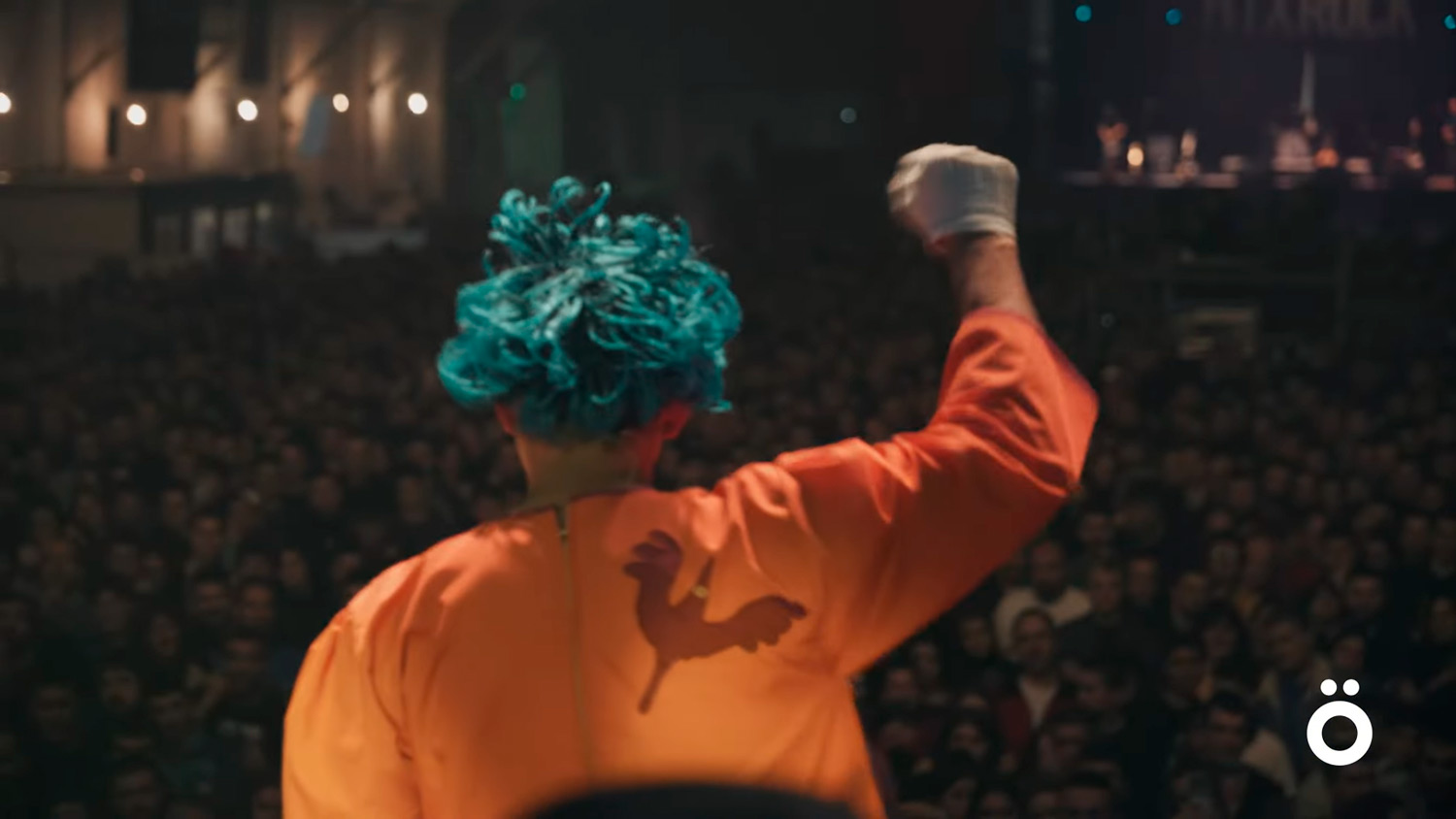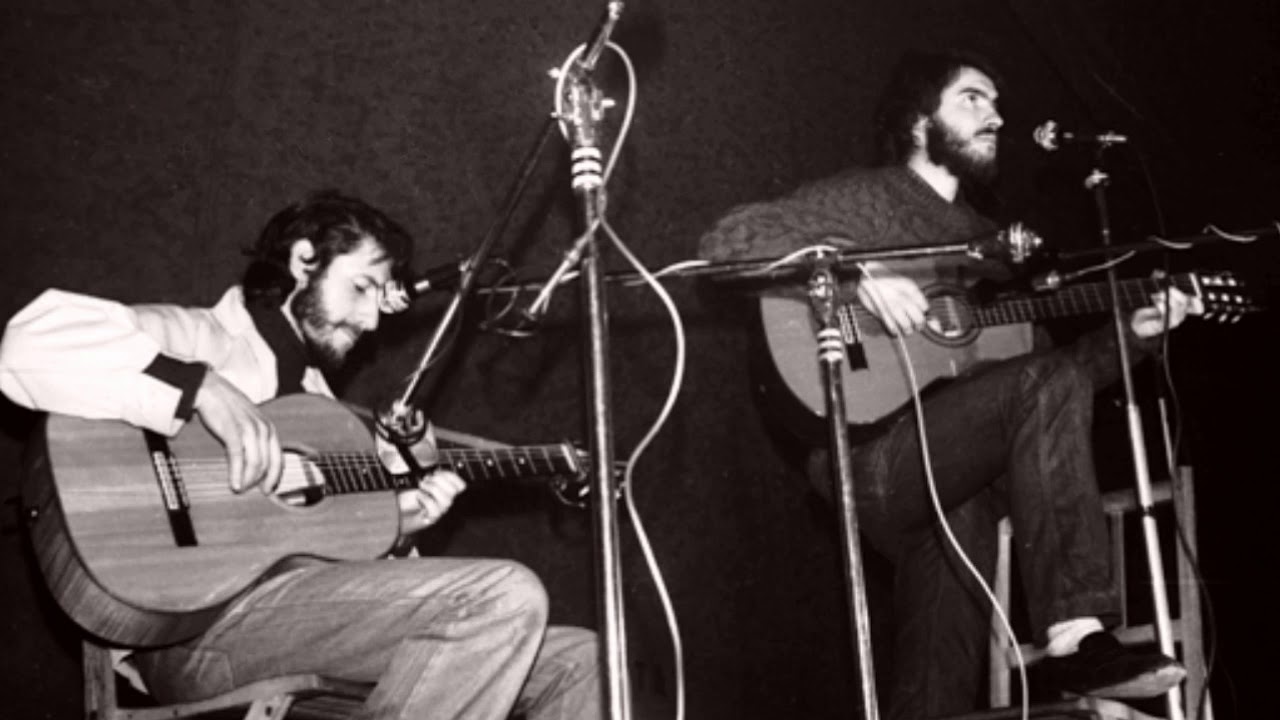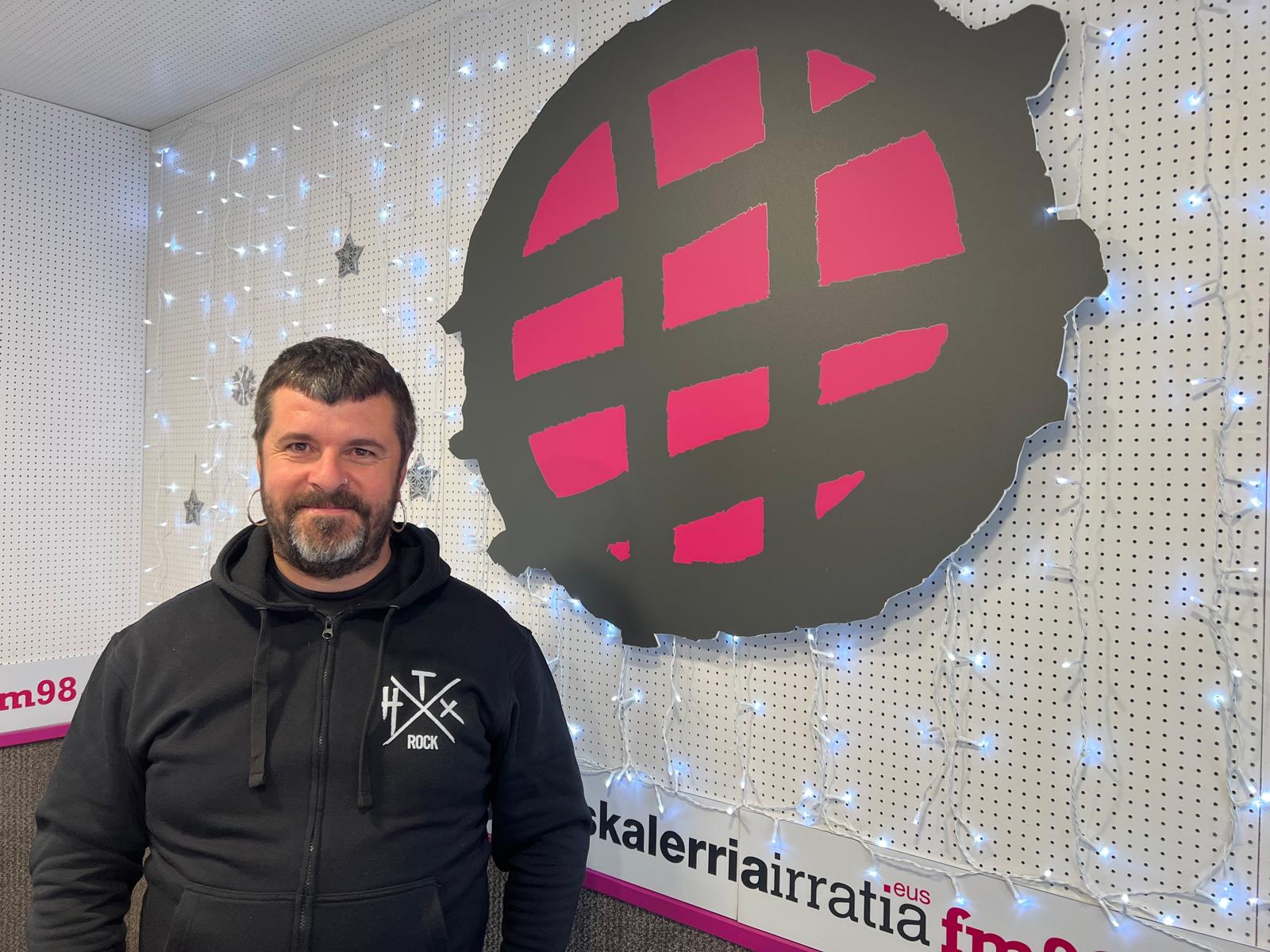"We've created ourselves to help most musicians, not the big groups."
- “What about musicians is a very individualistic world.” “The formula of the unions is obsolete.” More than a hundred people, the Union of Activists Musicians of Catalonia, have formed the SMAC with the aim of fighting this type of conviction. They have come together to demand conditions that are as basic as they are infrequent in defending their rights. One is mainly the right to be hired.
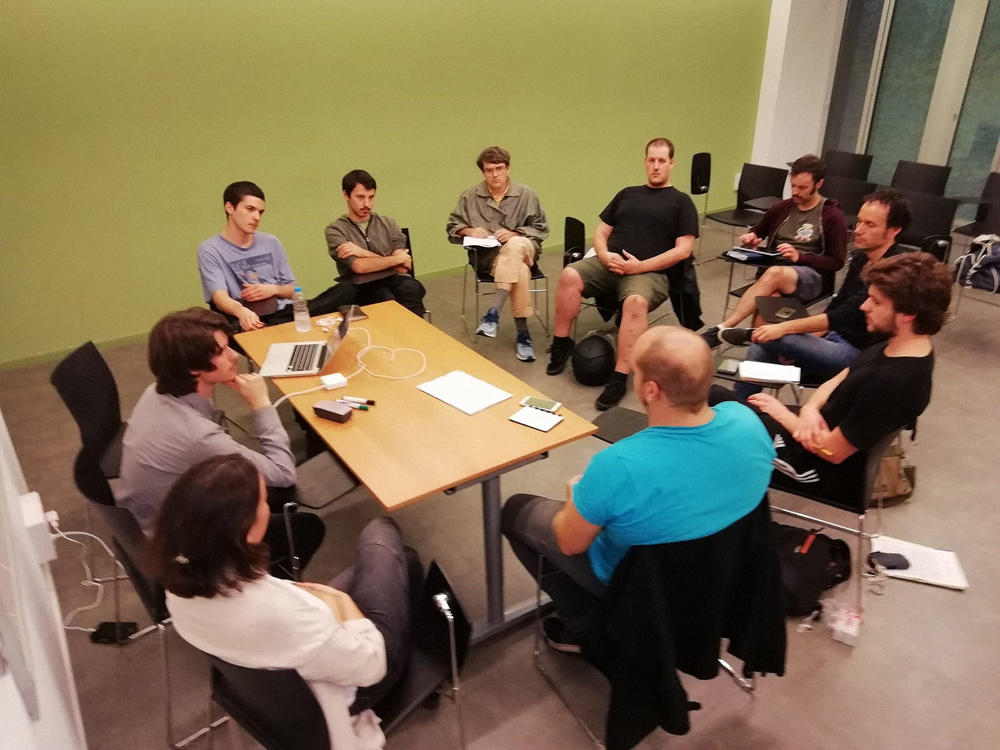
Albert Costa and Pablo Schvarzman are musicians. The first plays the thrombone in the The Gramophone All Stars Big Band and Manana's Compote groups, while the second is guitarist and electronics officer of the Seward band. It's not only about music work, it's also about joining the two actors and fighting. They are active members of the SMAC (Union of Activists Musicians of Catalonia) trade union, which was established two years ago. Among other things, they have managed to approve motions in several locations specifying the requirements for the hiring of musicians in different municipalities. We have been with them to know their lines of work, their ways of doing and their demands.
It all started at the gates of Primavera Sound 2016…
Pablo Schvarzman: Rotating with groups and sharing scenarios with others, we've met musicians with similar concerns and problems. The idea started to develop in those relationships, and all of a sudden we decided that it was time to start a lot of conversations, that we had to start taking more forceful steps. We organized an assembly and invited all the musicians we could. There could be any other plaza, but it was more appropriate to give it visibility and meaning, to find a site related to music. We sat in front of the entrance to Primavera Sound and there we held our first assembly. The initiative had a great impact and many of its members started calling themselves to raise awareness of different problems. We had to start working fast and responding to concrete problems, and then, when we had more time, we took the step to create the union.
Why trade union and not, say, association?
Albert Costa: We immediately understood that it was not useful for us to create an association of jazz musicians or playing bandurria, that we did not want to be an association that would organize a festival and a couple of conferences. We are a class union, because it is the best way to fight for the rights of all working musicians. In this way we can have a more official influence: meeting with the employers and talking directly to the people or entities that decide things.
P. Schvarzman: Today we are more than a hundred members and yet the operation has not changed much. Our basis is the Assembly, where we decide what our lines of work are going to be. We have an attorney working for us, but everybody else's work is voluntary. We do not want to be a professionalized union, nor a group of people affiliated with the accumulation of discount cards.
Albert Costa:
“Until you become a professional, it’s hard to meet your rights.”
What is an activist musician?
A. Coast: From the outset we have decided that we are going to be a union that is involved politically in every possible area. We took part, for example, in the general strike on 3 October. We have also published some observations on the repression of 1 October; and on the subject of freedom of expression, we are an active part of the collective No Callarem. A union that seeks to have a fundamental impact on society, both on its labour rights and on politicians. That's why we say we're activists.
They say that there is a tendency among musicians to solve problems individually. But you have taken the path of influence from the collective.
P. Schvarzman: It is curious that, in the case of the arts, painters or sculptors, for example, can only work and individuality would be more normal. But we do it often in groups, and that doesn't change. The actors, for example, have achieved their own convention, and we have not. I do not know why this is so, but it is clear that this trend has not made us any favour.
A. Coast: It may have to do with the hindrances of being accepted as a musician. Both because of our complexes and because of the lack of acceptance of others. I'm constantly being asked whether music is a hobby or a trade. Until you become a professional, it's hard to cater to your rights, and let's say nothing, to start thinking about a trade union or other formulas. The yellow line between professionals and amateurs is thin. When is someone professional: when does he play a lot? When do you have studies? We are not interested in this debate. As musicians, we defend the rights of the worker who works more or less.

Their main claim is that musicians have to be hired, that it is not enough to ask for an invoice.
A. Coast: We rely on the current regulations. The relationship between the musician and the one he hires under Royal Decree 1435/1985 must be labor. This means that if you are hired by a city hall or a hall, you must sign up for social security costs. This is only true in 1% of cases. Instead, they ask us for an invoice. To do so, we either have to sign up for self-employed or set up a company to hire us. Those of us who lose in those two possibilities are us.
P. Schvarzman: There are some who claim to be autonomous, although at present it is not even entirely legal. We, however, prefer to be hired. Basically, the self-employed are more unprotected and, moreover, they cannot join together. In addition, it is tricky: in most areas of work, an autonomous person decides when he or she is going to do that job, while a musician has to be in a given hour and place, yes or yes. This freedom is incompatible with the characteristics of those engaged and not with that of the self-employed.
Are groups that move a lot of money comfortable creating a business structure?
P. Schvarzman: Some groups do, because they have a lot of activity and they turn a lot. They can maintain a business structure. These calculations go into your cache and work as companies, but it's not valid for everyone. If someone wants to stop being a worker and wants to create their own company, we have no problems. But what about those who can't do that? Many of us are intermittent or touch in many groups. In our case, as in any other trade union, we are not concerned about the situation of big business. The situation of large and well-known groups is not our responsibility, we have not created ourselves to help them. We claim the rights of that vast majority of unprotected musicians.
Is the contract route they propose compatible with the reality of small rooms?
A. Coast: There are formulas for adapting to small rooms, and it may be that the union agrees with them what they can offer in return, if not in cash, in other conditions or care tasks. It is true that there are many halls that cannot cope with the hiring formula, but with the excuse of the situation of these small halls, the municipalities, the festivals and the big halls do what they want. Anyone who has the possibility of paying cannot refuse to comply with the law for more profits, or at the expense of our rights.
Therefore, public institutions should be the model…
P. Schvarzman: In the Spanish state the municipalities are the ones that work the most: popular festivals, subsidized festivals and programming of public places. They must be the model. They are also the easiest to influence through trade unions. We have tried with the political parties to call for motions, people to people, for the law to be enforced, guaranteeing recruitment. We have already achieved this in some towns and cities. The point is that there is a complete bureaucratic structure that has become accustomed to a number of ways of doing, and that does not change in one legislature to another. There's a lot of resistance.
Pablo Schvarzman:
“We don’t want to be a professionalized union”
Managers, promoters, etc. Do you think that the Commission's proposals are a good one?
A. Coast: In general, no. They get very nervous because they see that some of their privileges can be challenged. There is an industry that has been built in this allegal way of doing things and that does not take musicians into account. The basis of the industry is music, and yet we seem to be the last. Of course, we need rooms, organizers and people who work to promote our work, but all this must be compatible with our fundamental rights.
They have also focused on subsidies.
A. Coast: In Barcelona there are rooms that receive a lot of money. They get it through programming, but then they don't program it directly. What we are saying is that, in exchange for receiving a public subsidy, they should meet a number of requirements: gender balance, minimum care, as well as properly recruiting musicians.
You have denounced the presence of trademarks in the scenarios. Is it possible to change that?
A. Coast: There are festivals that are shameful: the whole stage looks like an announcement from Estrella Damn or Coca-Cola. Today, everyone takes photos and videos and puts them on the net. When you see this, see a group behind him with the brand logo. That, after all, is an announcement, which you do for free and without your approval. We claim that we have to negotiate and that the contract should also specify it. In my case, there are many companies that don't even pay for what I wouldn't accept, because I don't want to associate my image with them. We should be able to say no.
P. Schvarzman: We decided to cover the logo of a stage at a festival and had a very big clash with the organizers. If the group is big, it's different. They once stole the Coca-Cola posters from an entire festival by a well-known singer who had an agreement with Pepsi. But we do not have the negotiating power of him, at least on an individual basis. But if we come together, we can try to influence. That's where we are.
Have you also addressed the issue of copyright?
A. Coast: The truth is that we have not addressed this issue. We are not too big a team and it is difficult to reach everything. However, we are critical of SGAE. One of your problems is that you vote on the basis of sales. We want a system of how copyright is managed to be rethought, for each person to have one vote. The debate is more complex than the choice between SGAE and copyleft. Imagine that some people are just composers, and that's their main source of income. I believe that whoever wants to have the opportunity to make money along that path, but it has to be transparent.
In conclusion, what ways does a union have to approach the goals you have mentioned?
A. Coast: There are many. We are a generation used to acting through social media, and it is true that pressing there can be effective. We are trying to do something broader: demonstrations, pickets, whatever is necessary. What we're doing the most is meeting with people and institutions to explain our vision. We are meeting with almost everyone: employers, parties… However, in the long term, the most effective thing is to spread awareness and claim. We would like these objectives to be the majority demand.
Basque Country Herriko Gazte Orkestra. Winter Meeting
Director: Iker Sánchez.
Narrator: Kepa Errasti.
Programme: Works by Britt and Beethoven.
Place: Victoria Eugenia Theatre, Donostia.
Day: 2 January.
-----------------------------------------------
After 27 years, we... [+]
Chulería, fuck!
WHEN: 5 January.
WHERE: At the Kafe Antzokia in Bilbao.
----------------------------------------------------
As I filled the room, looking down behind the railing above the theater, I've been playing to see if I find someone younger than me before the... [+]
The New Year’s Morning is the title of a roundness created by Joxe Ansorena, brother of our grandfather Isidro, for the Txistularis to hit the streets during the New Year’s Morning. In the air of that melody, we were picking up the wrecks of the night, like the garbage... [+]
Beyoncé at the break of an American football game in Houston, Texas. The American singer has come to the center of the stadium in a cowboy suit that she's had access to. The hat covers the nice, the legs the boots long to the knees. The scarce white suit shows her thighs and... [+]
Alosia
Perlata
Autoproduction, 2024
----------------------------------------------------
The Arrasate Perlata group has published a new work. He has several records behind him and his latest work is punk, Oi! And it was a documentary in tribute to the unrepeatable... [+]
FERMIN MUGURUZA 40. ANNIVERSARY
When: 21 December.
Where: Bilbao in the Arena.
-------------------------------------------
Every year Bilbao will be on the 21st of December. The cider and talo, protagonists of the day, is the day of the fair of St. Thomas. This year,... [+]
Benito Lertxundi 60 urte iraun duen kantugintza uzten zuela jakinarazi du Durangoko azoka aitzin. 2023an Gernikan grabatu zuen kontzertu baten diskoarekin bururatuko du bere ibilbide handia bezain aberatsa. Bazuen urtea hartua zuela erabakia, ez da erraza izan horren berri... [+]
Hatortxu Rock jaialdiko 29. edizioa egingo da larunbatean Atarrabian. Sarrerak jada agortuta daude, baina txandak osatzeko laguntza behar da oraindik.









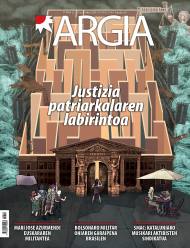

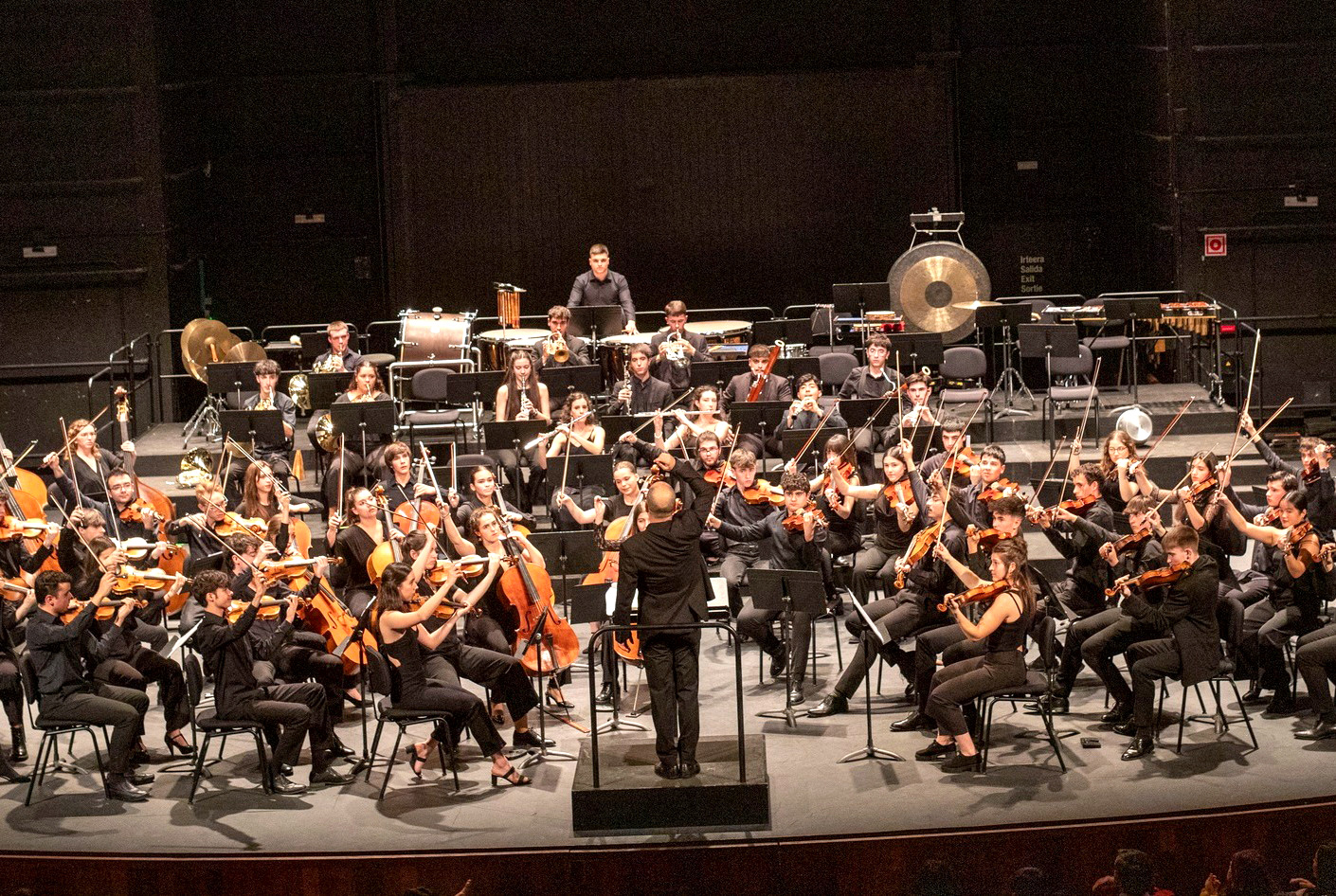



.jpg)
